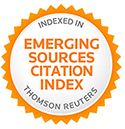Profesionalización en Turismo a través de la educación inclusiva en espacios colaborativos
Resumen
DOI: https://doi.org/10.53766/VIGEREN/2024.02.23.11
Traditional teaching practices have been transformed through digitization and commitment to the achievement of the Sustainable Development Goals, which seek to provide quality education for all sectors of the population. So, in the coming years, higher education institutions have the challenge of becoming agents of change for the training of global citizens, that internationalization becomes a process that allows for improving the quality of education and research, as well as developing soft skills and intercultural skills among students through inclusive education. In this way, virtual collaboration spaces such as COIL (Collaborative Online International Learning) and Mirror Classes are excellent strategies that allow accessible, inclusive and quality education through technology, collegiate and academic work of teachers and university students in various areas of knowledge that stand out in tourism. For this qualitative research work, a short conceptual framework on collaborative spaces and collaboration as an inclusive tool in higher education is carried out, then identifying benefits and importance in the professionalization of tourism, then explaining the COIL methodology and mirror classes as virtual places of internationalization and finally presenting results in the experiences of teacher participation of the Autonomous University of Hidalgo. The results state that the COIL projects and mirror classes are collaborative spaces that allow the development of disciplinary and technological skills demanded in the labor market together with an excellent strategy for the internationalization of institutions.
Palabras clave
Texto completo:
PDFP-ISSN 1317-8822 E-ISSN 2477-9547
DOI: https://doi.org/10.53766/VIGEREN
Twitter: @VisionGerenci
Facebook: Visiongeren
Instagram: @visiongerenci
![]()
Todos los documentos publicados en esta revista se distribuyen bajo una
Licencia Creative Commons Atribución -No Comercial- Compartir Igual 4.0 Internacional.
Por lo que el envío, procesamiento y publicación de artículos en la revista es totalmente gratuito.
 |  |  | |
 |  |  |  |
 |  | | |
| | |||
